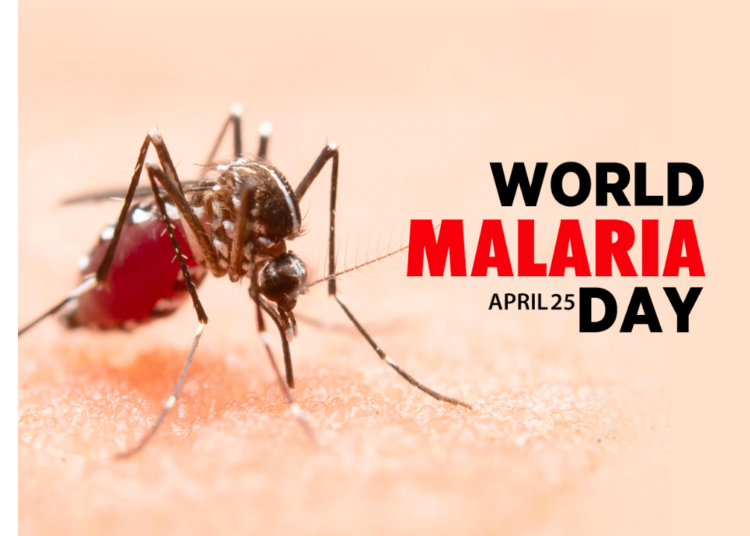As malaria continues to pose grave danger globally, there are indications that reprieve may have come the way of Nigerian children as vaccine to prevent the deadly disease is expected in the country by April 2024.
Minister of Health, Dr Osagie Ehanire, who disclosed this yesterday said already, Nigeria has submitted an application to GAVI for the RTS,S malaria vaccine allocation.
The minister stated this at a press briefing in Abuja in commemoration of the 2023 World Malaria Day (WMD) with the theme, “Time to deliver zero malaria: invest, innovate, implement and the slogan is “Act now”.
WMD is commemorated every 25th of April to raise awareness of the global effort to control and ultimately eradicate malaria.
The economic burden of malaria in Nigeria was estimated at $1.6b (N687 billion) in 2022 and may increase to about $2.8 billion (N2 trillion) in 2030.
RTS,S/AS01 vaccine (RTS,S), which is the world’s first malaria vaccine shown to provide protection against malaria in children under five, is the first-ever vaccine against a human parasite recommended for use by the World Health Organisation (WHO).
The vaccine was first piloted in 2019.
Ehanire, who was represented by the permanent secretary, Federal Ministry of Health, Mamman Mamuda, said, “Let me also inform you that the National Programme is working closely with the National Primary Healthcare Development Agency (NPHCDA) and other relevant stakeholders in accessing and deploying the new malaria vaccine (RTS,S) in a phased fashion subject to availability of needed quantity.
“The country has also submitted an application to GAVI for the RTS.S vaccine allocation. This is expected to be in-country by April 2024.”
The minister, however, called on the populace, particularly those living in malaria endemic regions who, according to him, account for most of the burden and deaths, to avail themselves of the available tools and strategies to enable the country to reach those in need.
Ehanire noted that the successful control of malaria will increase productivity, improve health, reduce school absenteeism, reduce poverty and facilitate the attainment of the Sustainable Development Goals.
“Consequently, we must continue to fight to achieve zero malaria by 2030, in line with the WHO Global Technical Strategy,” he added.
Meanwhile, WHO has said the R21/Matrix malaria vaccine developed by the Oxford University was still being studied for possible approval.
WHO country representative in Nigeria, Dr. Walter Kazadi Mulombo, disclosed this while fielding questions from journalists in Abuja.
He said, “To get full approval, you need approval from WHO. The vaccine is still being studied. We are still at the stage of reviewing evidence.”
WHO regional director for Africa, Dr. Matshidiso Moeti, however, said that the first malaria vaccine recommended by WHO to prevent malaria in children (also known as RTS,S) is saving lives.
Moeti, in her message on World Malaria Day, said, “In Ghana, Kenya and Malawi, where nearly 1.5 million children have received the vaccine through a WHO-coordinated pilot programme, there is a substantial decrease in hospitalisations for severe malaria and a drop in child deaths.
She said at least 28 countries in Africa have expressed interest in introducing the vaccine, with some additional countries to start in early 2024.
She continued: “The unprecedented demand for the first malaria vaccine is considered an opportunity to bring children back to clinics to catch up on missed vaccines and child health interventions – including reinforcing the need for children to sleep under ITNs every night.
“It is critically important to deliver this vaccine to children at risk: WHO, Gavi, UNICEF, and other partners are working to increase supply as rapidly as possible to protect more vulnerable children and save more lives”.
She called on member states to redouble their commitment to implementing an ambitious and innovative acceleration plan to rapidly reduce the burden of malaria and save the lives of its populations.
“This can be done by ensuring that everyone, everywhere, has access to the quality and affordable malaria services they need. This will require a more granular understanding of who is missing out, why they are vulnerable, and what are their barriers to accessing malaria preventive and treatment services.
“To achieve this, governments need to mobilise more resources and technical capacities at domestic and international levels and build effective partnerships and multisectoral mechanisms to help strengthen preventive measures and improve coverage of malaria case management services,” she said.





